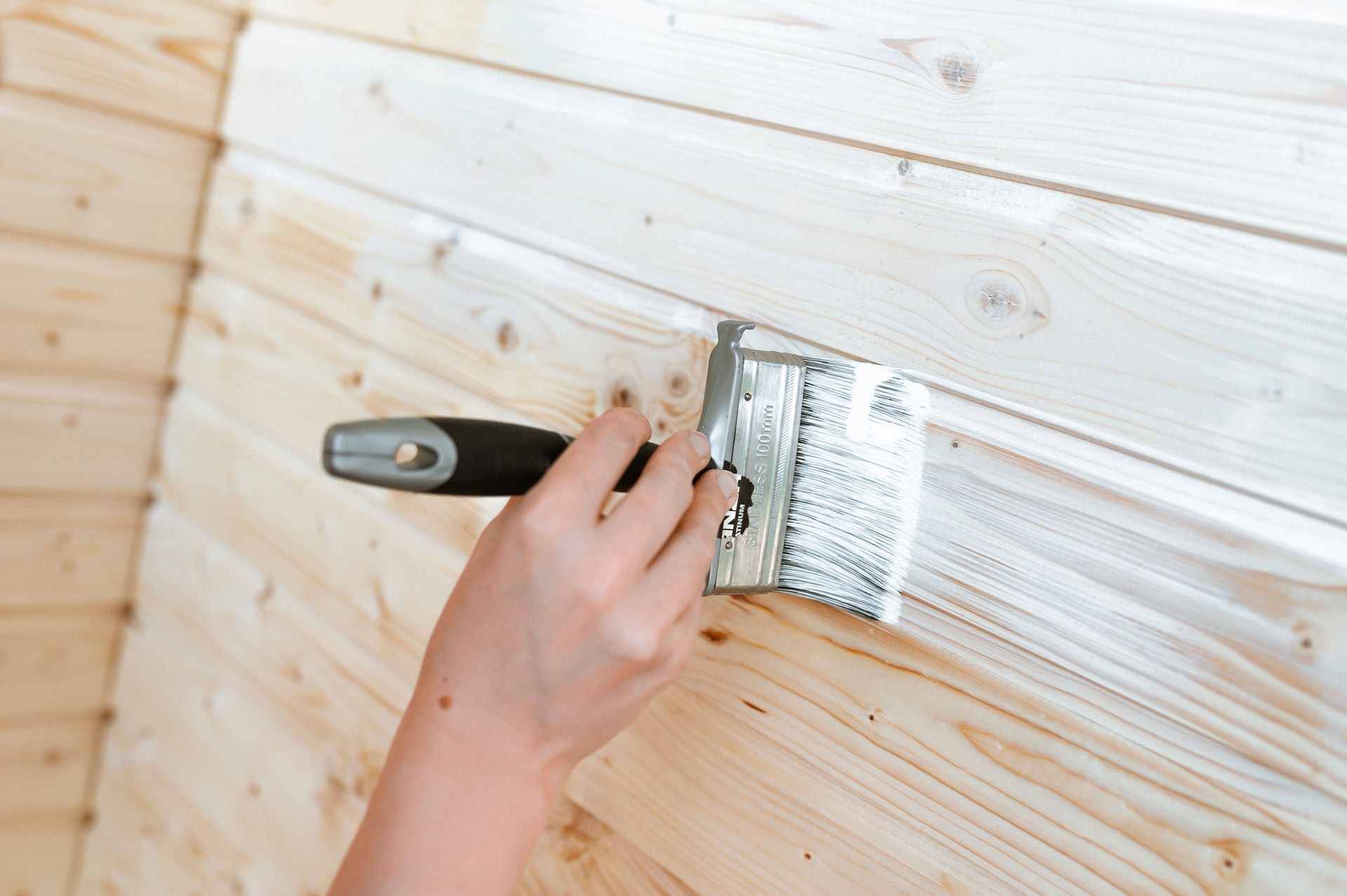3 Métodos para Eliminar Avispones - Aprende a Matar Avispones
Los avispones son insectos de gran tamaño cuyo aspecto y el característico sonido de su vuelo inducen el miedo en muchas personas. Sus picaduras son muy dolorosas. Además, las personas alérgicas a su veneno corren un grave peligro si hay un avispero cerca. Se pueden eliminar fácilmente los avisperos pequeños utilizando insecticidas en forma de "extintores" especiales. Los insectos también pueden ser repelidos por ciertos olores. Compruebe cómo hacer frente a este peligro.
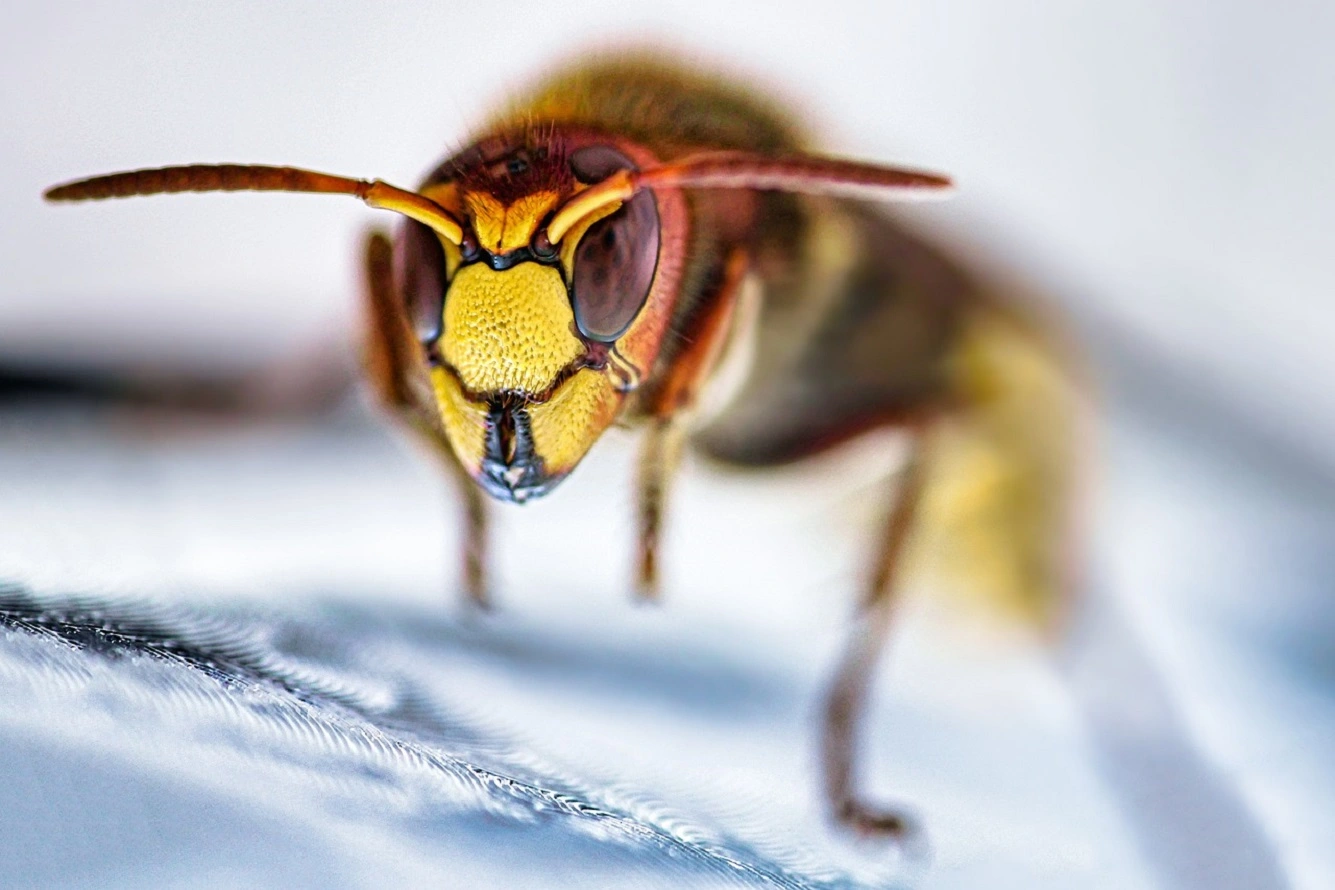
¿Son los avispones insectos beneficiosos?
Los avispones que viven en Europa son Vespa crabro. Se consideran insectos peligrosos, a menudo denominados plagas. Se alimentan principalmente de frutas, savia de árboles y otros insectos. Además, construyen sus nidos entre las ramas de los árboles, en los huecos de los árboles y en el suelo. Debido a la reducción de su hábitat natural, construyen regularmente sus nidos en lugares habitados por humanos, por ejemplo, bajo los tejados y en los áticos.
Los avispones se alimentan de otros insectos, sobre todo moscas, que son tratadas como plagas. Ésta es la función beneficiosa que cumplen. Pero es un beneficio pequeño si se tiene en cuenta que los avispones pican las frutas de los huertos, roen las raíces de las plantas jóvenes e incluso pueden dañar las construcciones de madera.
A pesar de los muchos beneficios que aportan los avispones, se puede decir sin temor a equivocarse que son plagas. Cabe mencionar que son especialmente peligrosos para los humanos. Las personas sensibles pueden morir a causa de su veneno.
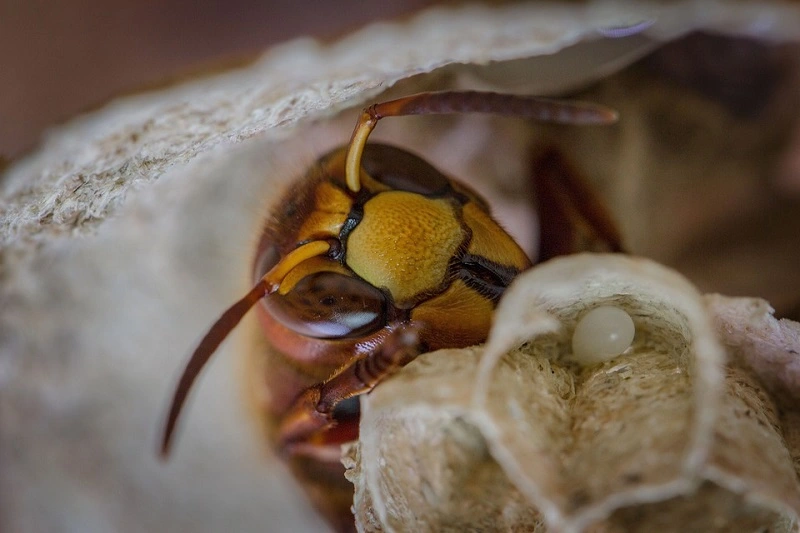
¿Es un avispero una gran amenaza?
Los avispones suelen ser tranquilos y no suponen un peligro inmediato. Pero la situación puede cambiar cuando una persona se acerca a su nido. Esto les hace sentirse amenazados y les impulsa a disuadir al invitado no deseado: es entonces cuando pueden usar sus aguijones.
La picadura de un avispón no es más peligrosa que la de una avispa. Inyectan unos 0,2 ml de veneno de una vez, mientras que la dosis letal es de 10-90 mg por kilogramo de masa corporal. En la práctica, esto significa que tendrían que picarte varios avispones para dañarte gravemente. No obstante, la picadura de un avispón es mucho más dolorosa que la de una avispa.
Los avispones son más grandes y sus picaduras son más profundas. El veneno de los avispones contiene muchas más toxinas, y el lugar de la picadura se inflama y enrojece dolorosamente. Puede causar:
- dolor de cabeza,
- confusión,
- escalofríos,
- fiebre.
Los síntomas pueden aparecer tras una sola picadura y pueden durar desde unas horas hasta varios días. Si permanecen más de varios días, es posible que tenga que acudir al médico. El veneno del avispón también es muy peligroso para las personas alérgicas, que pueden no ser conscientes de su sensibilidad. La picadura del insecto inyecta una dosis relativamente grande de toxinas, que pueden ser letales en algunos casos.
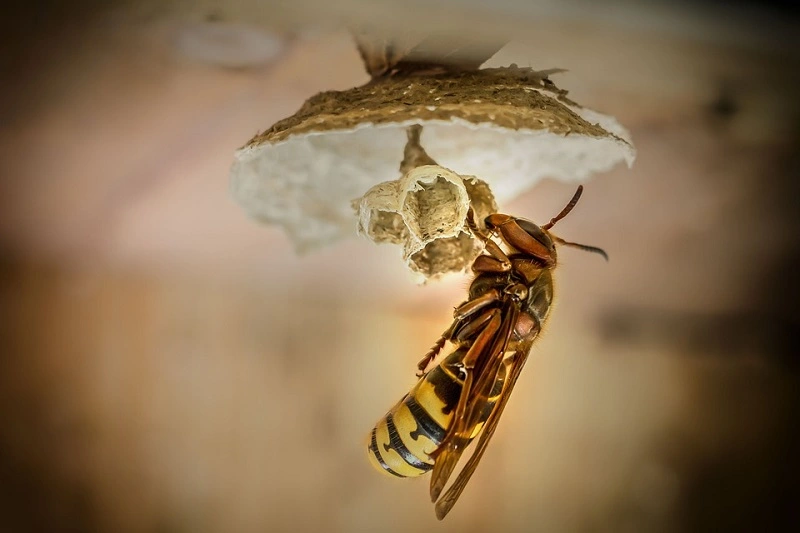
¿Cómo mantener a los avispones fuera de casa?
Los avispones se sienten atraídos por la luz. Por esta razón, el insecto podría volar al interior especialmente durante una noche cálida, cuando las luces están encendidas y la puerta del balcón o una ventana está abierta. Tenga en cuenta que, a diferencia de las avispas, los avispones no se sienten atraídos por el olor a dulces o carne. Les gustan los colores intensos, el olor a flores, conservas y frutas maduras.
¿Cómo repeler a los avispones si consiguen entrar? La mejor opción son los insecticidas contra avispones, que se pueden adquirir en la mayoría de las tiendas de jardinería.
Luchar contra un solo insecto no es problemático. Un avispero entero construido, por ejemplo, bajo el tejado es mucho más difícil de tratar. En tal caso, es posible que tenga que llamar a los servicios o a una empresa especial de control de avispones.
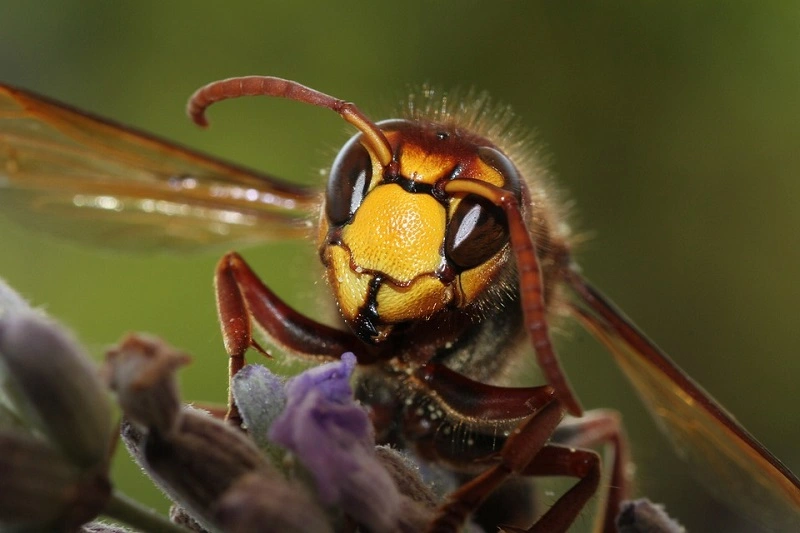
¿Cómo mantener a los avispones alejados de su jardín?
Los avispones son insectos grandes que producen unos zumbidos característicos y aterradores. Si los ves a menudo en el jardín, puede significar que hay un nido en algún lugar cercano. ¿Cómo repeler avispones en su jardín? Algunos olores son irritantes para los avispones y los ahuyentan.
Si quieres deshacerte de los avispones en tu jardín, puedes utilizar el olor de las plantas que estos insectos no toleran. Si hay avispones volando por la zona, quizá quieras plantar varias plantas que los disuadan de visitar tu patio.
Considera plantar estas especies:
- lavanda,
- ajo,
- pensamientos,
- geranios.
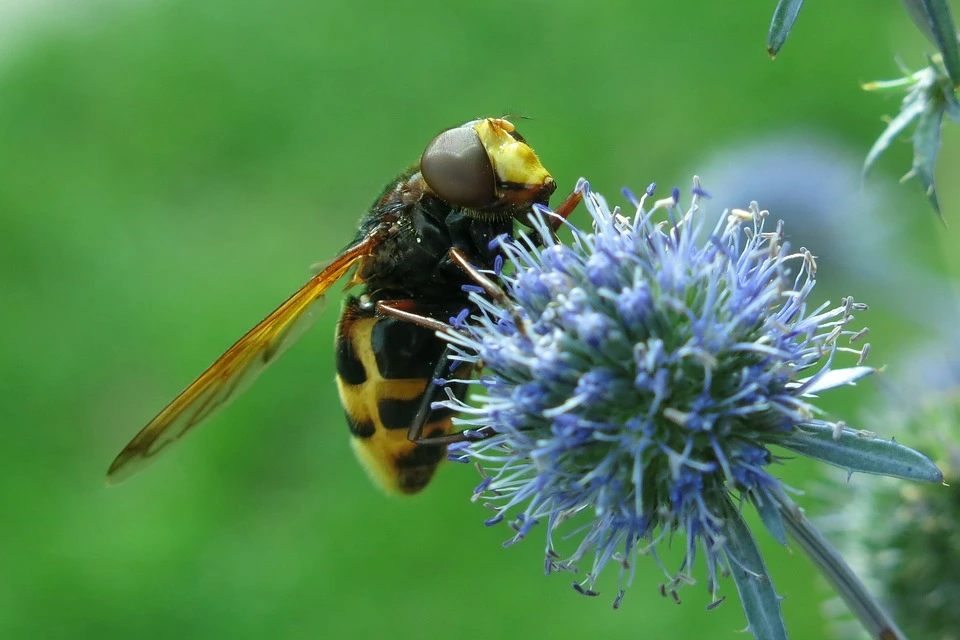
¿Qué aspecto tiene un avispero?
Un avispero es fácil de identificar. No lo confundirá con ninguna otra cosa. Se parece a una gran bola de papel que mide hasta 50 cm de ancho y de largo. Un nido contiene siempre una reina y hasta 700 obreras. Para construir el nido, los insectos utilizan madera mezclada con saliva.
¿Cómo encontrar un avispero? Sólo tiene que seguir a uno de los insectos que haya observado. Éste le revelará su ubicación al volver al nido. Sin embargo, no es recomendable acercarse a él, ya que los avispones lo defenderán ferozmente. Una vez localizado el nido, asegúrate de llamar a los servicios adecuados o a una empresa que se ocupe de la eliminación de este tipo de insectos.
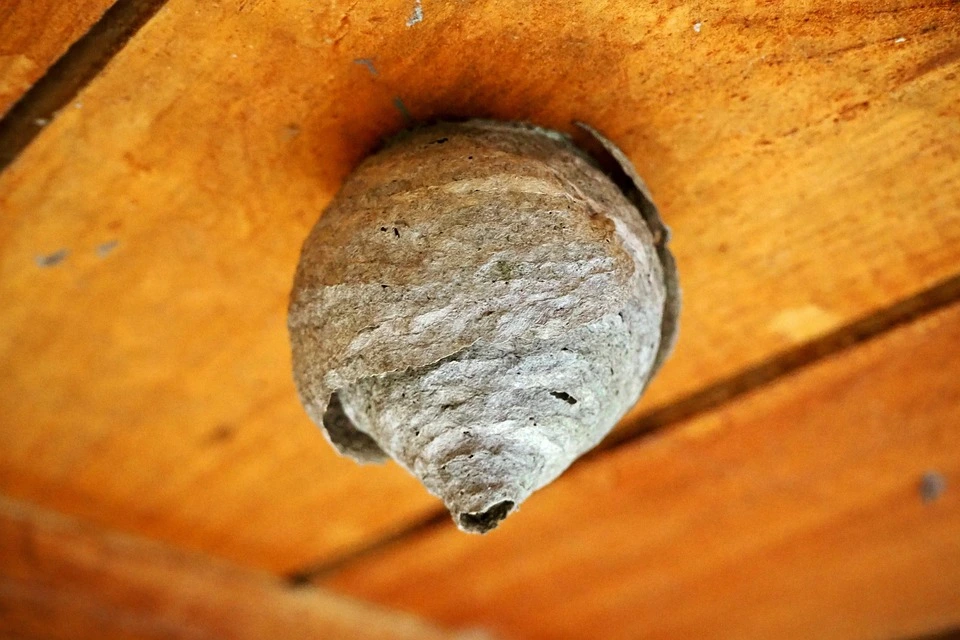
Un avispero pequeño: elimínalo tú mismo
Si el avispero es pequeño y con pocos insectos viviendo dentro, puedes quitarlo tú mismo. En cualquier caso, si decides hacerlo, extrema las precauciones para no exponerte a las picaduras de los insectos. Los avispones no son muy activos en invierno, y se activan en primavera.
La noche no es el mejor momento para retirar un avispero. Es entonces cuando los insectos están más animados que durante el día. ¿Cuándo duermen los avispones? Cuando menos activos están es durante las mañanas tempranas y frías. Es entonces cuando puede decidir deshacerse del nido.
No retire el nido mecánicamente. Es muy peligroso y podría enfadar a los insectos, haciéndolos más agresivos.
Utilizar un pesticida extintor especial es un método eficaz para acabar con los avispones. Al aplicarlo, asegúrate de cubrirte la cara con una mascarilla, para no inhalar la sustancia nociva. El extintor le permite rociar el nido desde unos metros de distancia. El producto tiene un efecto inmediato al dañar el sistema nervioso de los insectos. Los avispones que no estaban en el nido durante la fumigación, quedarán expuestos a la sustancia al volver y también morirán.
Un avispero grande: ¿dónde denunciarlo?
Un avispero grande con cientos de insectos viviendo en él debe ser notificado a los servicios pertinentes. En el caso de avisperos que supongan una amenaza directa para la vida de las personas, los bomberos locales podrían retirar el nido. En caso contrario, si hay un nido grande cerca y desea eliminarlo, deberá contratar servicios de eliminación de plagas.
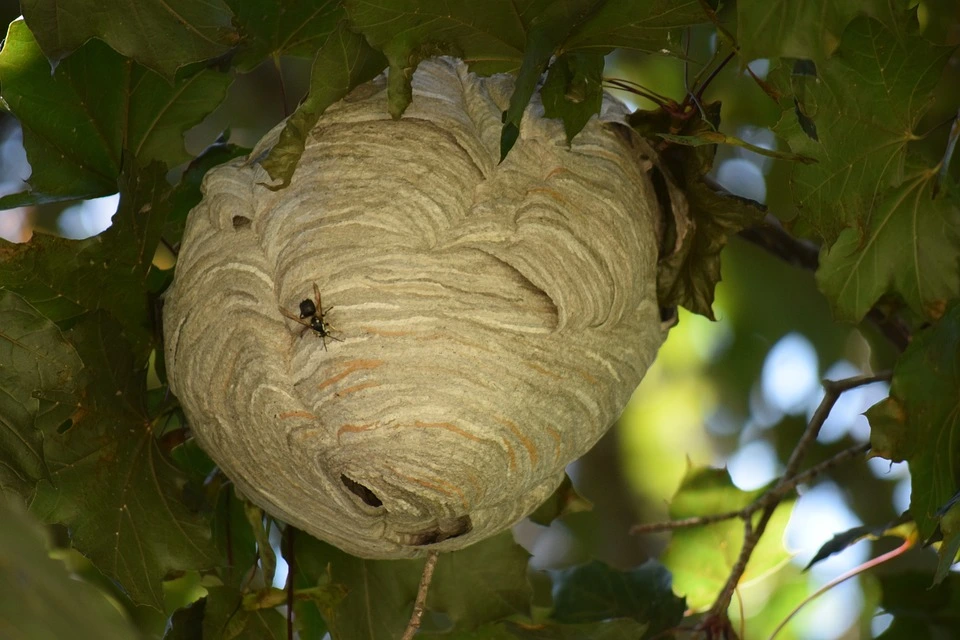
📍 ¿Cómo se hace un avispero?
Los avispones construyen sus nidos basándose en la masa de papel que producen. Utilizan madera en descomposición y su propia saliva. Los avisperos suelen estar situados en árboles, huecos de árboles y áticos. También puede encontrar un avispero en el suelo.
📍 ¿Dónde denunciar un avispero?
¿Se pregunta dónde denunciar la presencia de avispones y su nido? Dependiendo de la zona en la que viva, es posible que tenga que llamar a los bomberos o a los servicios de control de plagas. Ellos tomarán las medidas necesarias para localizar y deshacerse de un nido peligroso, si supone una amenaza grave para la salud o la vida de las personas.
📍 ¿Quién está obligado a retirar un avispero?
Según el país y la región, los bomberos pueden ser el servicio que se ocupe de los avisperos, sobre todo si las plagas suponen una amenaza grave. De lo contrario, puede que tengas que contratar servicios profesionales de control de plagas o intentar repeler los insectos tú mismo.
📍 Control de avispones: ¿cómo afrontar el problema?
Destruir un avispero por su cuenta puede ser peligroso. Utilizar ciertas medidas preventivas es una mejor opción. Puedes probar a repeler avispones utilizando lavanda, geranio o ajo. De este modo, los insectos no construirán su nido en la zona.
Artículos destacados




